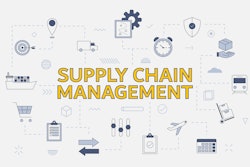
Global shipping is fundamentally a people-first industry where strong, trusted relationships are key to navigating the challenges and disruptions that affect supply chains daily. The collaboration between global shippers, logistics providers, and industry partners is essential to ensuring the reliable, efficient movement of goods throughout the world.
By working collaboratively, it’s possible to effectively navigate the complexities, challenges, and unique attributes of global markets. Collaborative partnerships with local market experts on the ground provide invaluable insights, local and regional knowledge, and problem-solving capabilities to keep supply chains on course. Navigating the distinct regulations and infrastructures of a region is a critical value-add when moving freight to and from global markets. It is key for global logistics providers to foster these connections to ensure optimal supply chain solutions are implemented.
By building trusted, longstanding business relationships with the many players at each supply chain link the global shipping community creates a collaborative environment with a strong foundation that supports success. It is the cornerstone that keep supply chains and their logistics networks on course, especially when disruptions occur.
Culture
Company culture is an important aspect of business which impacts how employees develop within an organization and how they interact with customers, making it essential for long-term business success.
A well-defined company culture focused on honest and straightforward communication with clients, industry partners and internal team members creates a caring, productive environment. Interacting with people respectfully and with high integrity creates trusted relationships, a sense of security, and a fruitful working environment for all.
A unified, thriving culture enables companies to elevate performance and productivity. Human-centric cultures, at every level and in every function, shapes a positive working environment.
Clearly outlined core values centered around a people-first experience defines how staff should communicate and collaborate, honestly and with a family oriented approach. This leads to higher job satisfaction, lower workforce turnover rates, and an enhanced customer experience. Everyone wins.
Moreover, encouraging collaboration among employees through a team mindset, brainstorming sessions, and cross-departmental initiatives drives innovation and strengthens performance. A clearly defined culture is a guiding light that strengthens an internal workforce's work ethic, morale, and satisfaction.
Proactive Communication
Open communication is the basis of good relationships. It’s critical for global shipping participants to thoroughly understand industry trends, challenges and new services and solutions that could impact supply chains and the smooth flow of cargo worldwide.
It’s beneficial for logistics service providers to communicate openly and share their knowledge and the possible impacts with their shipper clients to support strategic supply chain planning and innovative service solutions. When clients are aware of new developments and the challenges ahead, they can effectively prepare contingency plans to mitigate risk and explore alternative logistics and supply chain options.
From ongoing collaboration and communication with a client, a logistics provider will have a clear understanding of a clients’ operational requirements and expectations. This serves as the foundation for successfully managing logistics networks, especially when disruptive events occur that impact supply chain performance.
Transparency
Transparent communication is beneficial to the internal working environment at a company, as well as externally with clients. Clients appreciate timely updates and transparency regarding all aspects of their logistics operations, from freight rates to shipping industry insights.
Transparent communication opens doors for new opportunities, as industry partners are more inclined to engage with businesses that align with their values. In addition, transparency builds confidence in a company, leading to long-term client relationships.
Internally, transparent communication is essential for aligning goals, sharing knowledge, and fostering a sense of community. Transparency is reassuring, as it indicates to people that they can count on what is said and respect is reinforced creating an ongoing constructive framework, for staff members, as well as clients and vendor partners.
Enhanced Communication with Technology
Leveraging technology to enhance communication and collaboration is a must today. Digital web-based tools are an effective way to streamline workflows and enhance connectivity among team members, clients, and vendors.
Communication platforms foster seamless interactions that facilitate real-time communication and data sharing enabling employees to quickly and easily coordinate projects and share key client updates.
The ability to effortlessly communicate online 24/7 across geographical barriers with global partners is especially significant when disruptive supply chain events occur. This timely connectivity helps global partners communicate in real-time and resolve issues faster and more efficiently.
For shipper clients, this means better visibility into the status of their shipments and more reliable service delivery to boost their customers’ satisfaction.
Integrating sophisticated logistics and communication tools not only optimizes operations but also strengthens the competitive edge of companies in the global shipping arena.
Overall, a human-centric business approach that values honesty, trustworthiness and integrity creates a strong, positive impact across a workforce, with clients, as well as industry partners, supporting sustained success and a competitive edge in the market.


















![Pros To Know 2026 [color]](https://img.sdcexec.com/mindful/acbm/workspaces/default/uploads/2025/08/prostoknow-2026-color.mduFvhpgMk.png?ar=16%3A9&auto=format%2Ccompress&bg=fff&fill-color=fff&fit=fill&h=135&q=70&w=240)
